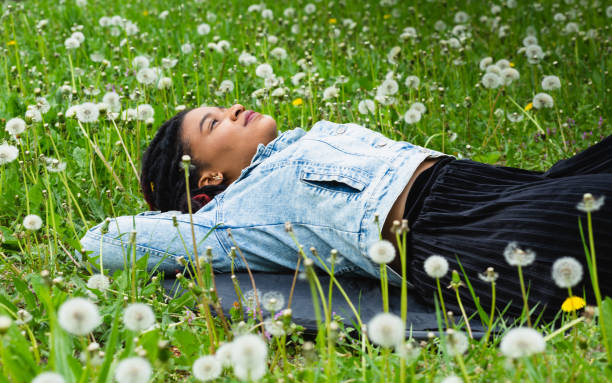
If you're one of the more than 50 million Americans living with seasonal allergies, there are at least 100 cities you should avoid this spring. Or at the very least, plan your allergy defense strategy accordingly if you need to visit for work or pleasure. The Asthma and Allergy Foundation of America (AAFA) has compiled and released its 2022 list of “the 100 most challenging places to live with allergies” during the spring and fall seasons.
To determine the nation's "Allergy Capitals," the AAFA measured and compared seasonal data that included:
- Spring pollen scores
- Fall pollen scores
- Over-the-counter medicine use
- Availability of board-certified allergists/immunologists
Each city was assigned a score out of a maximum of 100 points (Hint: Having a score close to 100 is NOT a good thing). Check out the list below of the top 10 worst cities for spring allergy sufferers. To view the full list of 100, click here.
10. Albany, New York
- Allergy severity: 78.27
9. New Haven, Connecticut
- Allergy severity: 80.44
8. Buffalo, New York
- Allergy severity: 81.15
7. Hartford, Connecticut
- Allergy severity: 81.68
6. Oklahoma City, Oklahoma
- Allergy severity: 83.78
READ: 10 Tips For Managing Allergies While Traveling
5. San Antonio, Texas
- Allergy severity: 84.63
4. Richmond, Virginia
- Allergy severity: 85.79
3. McAllen, Texas
- Allergy severity: 86.11
2. Wichita, Kansas
- Allergy severity: 92.60
1. Scranton, Pennsylvania
- Allergy severity: 100
This year’s report named Scranton, Pennsylvania, as the top 2022 Allergy Capital™ due to its:
- Higher-than-average spring pollen
- Higher-than-average fall pollen
- Fewer board-certified allergists/immunologists
Symptoms
Common symptoms of allergic rhinitis caused by seasonal allergies include:
- Sneezing
- Stuffy nose (nasal congestion)
- Runny nose (usually a thin, clear discharge)
- Red and watery eyes
- Itchy nose, eyes, ears, or mouth
- Swelling around the eyes
Allergy Season Is Near: Be Prepared
Protecting yourself from pollen
Pollen is one of the biggest triggers for allergy suffers.
According to AAFA, in the spring, as the warm weather causes more people to head outside, one of the season’s biggest problems is tree pollen while grass pollen follows later in spring into summer. In the late summer and early fall, weed pollen – especially ragweed pollen – can trigger symptoms just as kids are returning to school.
Because pollen can land on you and be carried into your home, if you spend a lot of time outside, the AAFA offers the following tips to protect yourself from pollen:
- Check pollen counts or forecasts daily and plan outdoor activities on days when pollen counts are expected to be lower.
- Keep windows closed during pollen season or peak pollen times.
- Use central air conditioning or air cleaners with a CERTIFIED asthma & allergy friendly® filter and/or HEPA filtration to reduce indoor airborne allergens (including pollen that may enter your home through doors, windows, on your clothes, and on pets).
- Wear sunglasses, a mask, and a hat or other hair covering when outdoors.
- Take a shower and wash your hair before going to bed (if your hair was uncovered outside).
- Change and wash clothes after outdoor activities.
- Dry laundry in a clothes dryer or on an indoor rack, not on an outdoor line.
- Limit close contact with pets that spend a lot of time outdoors. Wipe pets off with a towel before they enter your home.
- Remove your shoes before entering your home.
- Wash bedding in hot, soapy water once a week.
RELATED: Is There A Link Between Anxiety And Seasonal Allergies?
Treating allergy symptoms
If you are experiencing allergy symptoms, the following methods of treatment may offer you relief:
- Nasal corticosteroid sprays (the most effective medicine for allergic rhinitis)
- Allergy medicines – such as non-drowsy, long-acting antihistamines
- Decongestants (for short-term use - check with your doctor before using if you have high blood pressure, glaucoma, thyroid disease, or trouble urinating)
- Leukotriene modifiers (such as SINGULAIR®)
- Immunotherapy – allergy shots or tablets for long-term treatment to reduce how severe your allergic reactions are
Before taking any form of treatment and before your allergies begin, remember to talk with your doctor to discuss which treatment is right for you and to make sure it doesn't interfere with any pre-existing health conditions or any other medications you are currently taking.
Visit the BlackDoctor.org Allergy center for more helpful articles and tips.









